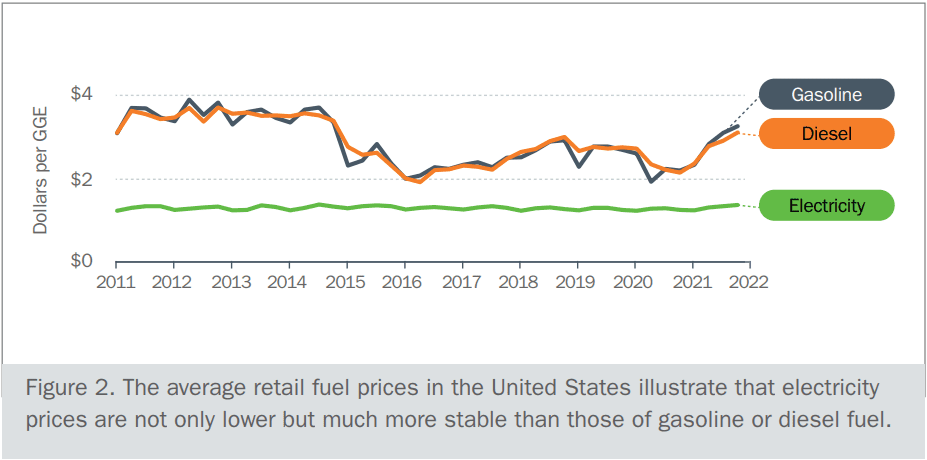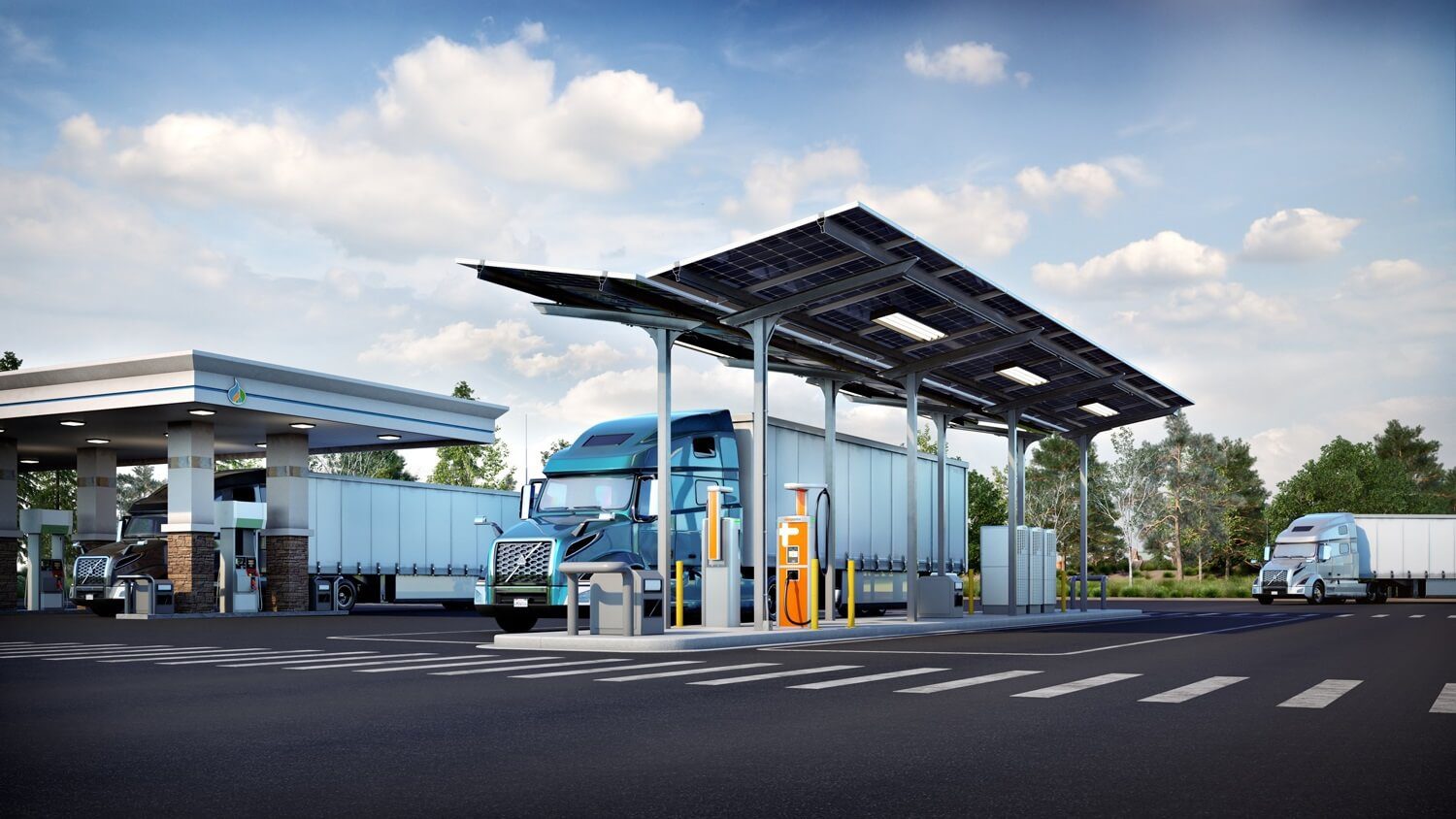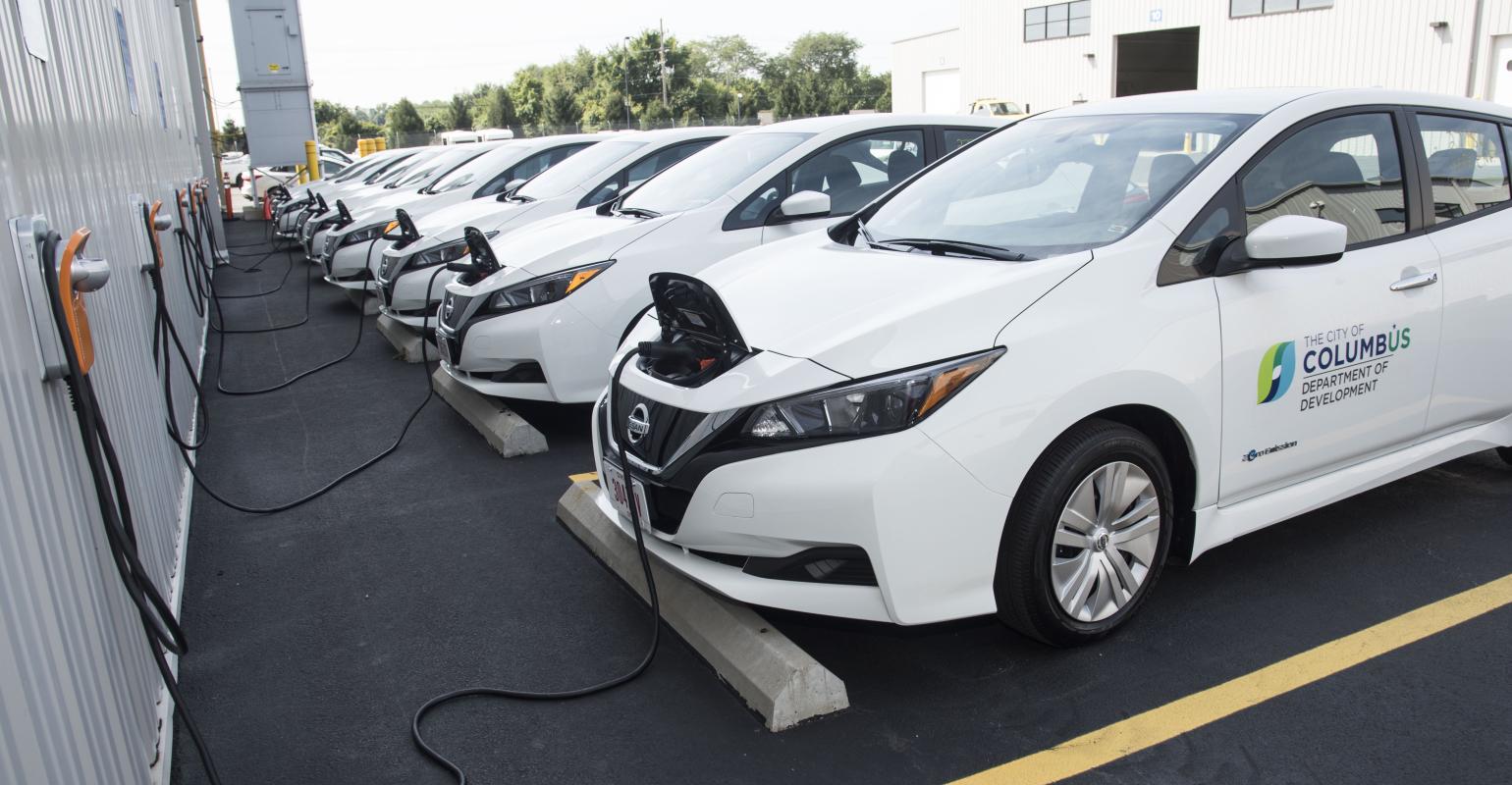Electric vehicles (EVs) can fulfill many daily driving needs, making them an excellent solution for fleets across light-duty, medium-/heavy-duty (MD/HD), and even off-road applications. They offer several benefits tailored to the unique fleet environment, which presents considerations beyond those of consumers. Fleet managers must understand the impacts of charging multiple vehicles while maintaining operations, especially as larger MD/HD vehicles bring additional factors to consider.
Why Consider Fleet Electrification?

Lower Costs
In addition to available incentives, EVs offer high fuel economy, which translates to lower operating costs. Operation and maintenance averages about 3 cents per mile for light-duty EVs. They achieve their best fuel economy during stop-and-go driving conditions, which are typical of many fleet vehicle applications. Electricity prices have also been less volatile than those of gasoline and diesel, making it easier to estimate future fuel costs. Finally, lower off-peak electric rates may be available for charging, reducing EV costs.
Performance Features
EVs are much quieter than conventional vehicles. They produce maximum torque and smooth acceleration from a complete stop, which can be especially useful when hauling heavy loads. Additionally, some EVs can be a significant energy source for off-board equipment such as power tools or lights, providing several kilowatts of electricity through multiple electrical outlets.
Flexible Charging with EVs
EVs can be charged at fleet facilities or public stations. Facility charging enables EVs to charge overnight and during idle times. Public “fast charge” stations are increasingly available along major transportation corridors to extend EV range for longer trips. Plug-in hybrid electric vehicles (PHEVs) can refuel with gasoline/ diesel at traditional fueling stations when necessary, adding even more flexibility.
Meeting Sustainable Goals
EVs can help fleets comply with state or local alternative transportation policies, as well as net-zero and sustainability goals.
Lower Fleet Vehicle Maintenance Costs
EV systems require lower maintenance. Kelley Blue Book (KBB) states electric vehicles (EVs) may last as long or longer than internal combustion engine (ICE) vehicles due to fewer moving parts.EVs have about 20 compared to ICE vehicles’ 2,000, as noted by Drive Electric, a New Zealand-based EV advocacy group. Without components like fuel pumps and crankshafts that can fail, EVs avoid many common maintenance issues. Though EVs still require care for brakes, tires, and other basics, owners benefit from reduced costs without oil changes and engine upkeep. Proper service adherence and smart charging can further extend an EV’s lifespan.

EV Charging Considerations
When planning for EV charging at your fleet facility, several crucial factors come into play. Below is a comprehensive checklist to guide you through the entire process, from initial planning to ongoing management:
- Charging Needs Assessment: Determine the type of charging solutions required, and consider both hard-wired and portable options.
- Site Planning: Account for current needs and future expansion possibilities.
- Vendor Selection: Choose the right vendors for vehicles and charging equipment.
- Professional Consultations: Engage with vehicle manufacturers, charging equipment vendors, and utilities for expert advice.
- Networking and Rates: Explore networking options and understand the electricity rates that are applicable.
- Ownership Options: Decide between vendor or fleet ownership of the charging equipment.
- Cost Estimation: Calculate the total costs, including incentives, initial project expenses, and ongoing costs.
- Construction and Electrical Work: Select certified electrical contractors for construction tasks.
- Site and Planning Finalization: Make final decisions on site selection and detailed planning.
- Engineering and Construction Management: Oversee engineering, permitting, and inspections.
- Training Programs: Implement initial staff and recurring driver training on EV charging.
- Maintenance and Agreements: Establish maintenance routines and agreements with equipment providers.
- Fuel and Electricity Management: Implement systems for tracking EV electricity use, including usage rates and costs.
Looking to electrify your fleet and drive into a sustainable future?
Resound Energy Services is your partner in transitioning to electric vehicles (EVs), offering expert guidance and solutions to optimize efficiency and sustainability. From assessing your charging needs to implementing a seamless EV charging infrastructure, we’ve got you covered.
Don’t wait to future-proof your fleet. Contact Resound Energy Services today for a consultation and discover the path to cost savings, efficiency, and sustainability. Let’s electrify your fleet together!


